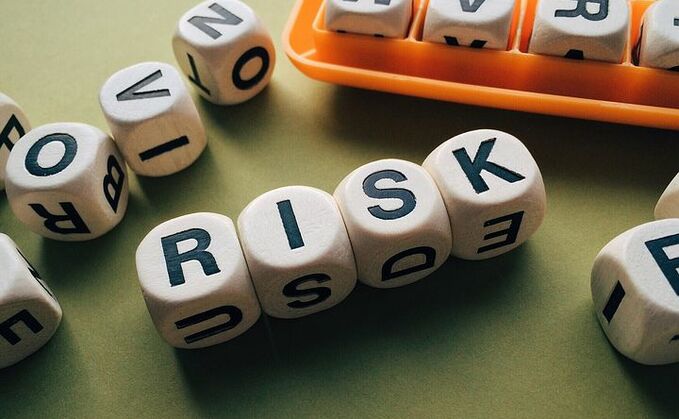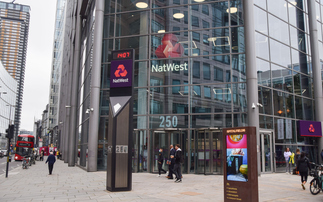
Industry Voice: Schroders sets out what the World Economic Forum's Global Risks Report 2023, signals for investors
World Economic Forum's Global Risks Report 2023, signals for investors
A cost of living crisis, natural disasters and extreme weather events and failure to mitigate climate change are among the world's top 10 risks, according to latest Global Risks Report 2023 from the World Economic Forum.
Cost of living topped the risks over a two-year horizon, followed by natural disasters and extreme weather events and geo-economic confrontation. Five of the 10 are environmental while three are societal, one is geopolitical, one is technological, and one is geopolitical.
Meanwhile over a 10-year horizon, the proportion of environmental risks rises to six, with failure to mitigate climate change topping the list followed by failure of climate change adaptation and natural disasters and extreme weather events.
Top 10 risks over a two-year period:
-
- Costs of living crisis
- Natural disasters and extreme weather events
- Geo-economic confrontation
- Failure to mitigate climate change
- Erosion of social cohesion and societal polarisation
- Large-scale environmental damage incidents
- Failure of climate change adaptation
- Widespread cybercrime and cyber insecurity
- Natural resource crises
- Large-scale involuntary migration
Top 10 risks over a 10-year period:
-
- Failure to mitigate climate change
- Failure of climate change adaptation
- Natural disasters and extreme weather events
- Biodiversity loss and ecosystem collapse
- Large-scale involuntary migration
- Natural resource crises
- Erosion of social cohesion and polarisation
- Widespread cybercrime and cyber insecurity
- Geo-economic confrontation
- Large-scale environmental damage incidents
What does the WEF's Global Risks Report 2023 signal for investors and why do these issues matter?
At the end of last year, Schroders' economics and investment teams published the five key macro trends they expect to define the coming years as we move into a new economic regime.
As Schroders' Azad Zangana, senior European economist and strategist, and group CIO and head of investment Johanna Kyrklund, previously wrote in the article 'Regime shift: investing into the new era': "As this economic cycle ends, we shouldn't expect to see the patterns of the past decade repeated. A new regime in policy and market behaviour is unfolding which investors need to understand if they are to find the best opportunities and safeguard their portfolios."
To give a few examples, Johanna Kyrklund has cited changes to the way we look at fixed income, changes to how we value assets, an increased divergence in interest rate cycles across different countries and regions, increased borrowing costs and likely lower price-to-earnings ratios.
She has said: "In this new era, it's clear that much will change for investors: how to value assets, where to find the best opportunities, how to manage risk. But the ingredients for success remain the same. We need teamwork, rigorous analysis, open-mindedness, flexibility, and, above all, an active approach."
According to Willem Schramade, head of sustainability client advisory, and co-author of the textbook Principles of Sustainable Finance, many investors "want strong returns generated within social and planetary boundaries". He says often they want to "adopt a dual return perspective": "They want both good financial results and good results for society and nature."
As he explained in a recent article, 'Attaching accurate values to E and S: why I joined Schroders': "The importance of considering E and S in value terms can hardly be stressed enough… expressing sustainability issues in value terms, valuing companies' externalities."
The cost of living crisis and failure to mitigate climate change ranking as the most severe global risk over the next two and 10 years comes as no surprise to Andy Howard, global head of sustainable investment.
As he observed in his 'Outlook 2023, Sustainability: five key trends to watch': "With the world continuing to emerge from Covid-19 lockdowns, cracks in economies, societies and environmental ambitions are becoming clearer. Looking ahead, the debt legacy from the crisis is limiting governments' capacity to continue supporting societies through difficult times. We're likely to see more interventions and business will be expected to play a greater role in tackling critical issues from climate challenges and biodiversity threats to cost-of-living crises."
Sarah Woodfield, an active ownership manager and Schroders' engagement lead for biodiversity and nature, attended the COP15 UN biodiversity summit in December.
Speaking on an episode of 'Green Finance Institute's podcast Financing Nature' in partnership with the United Nations Environment Programme, which was recorded at COP15, Sarah Woodfield said: "We've been engaging with companies for a number of years, and particularly over the last three years we've had over 200 engagements with companies that we invest in on biodiversity and nature-related issues. And that encompasses quite a number of different areas. That could be anything from land exploitation, which is one of they key drivers of biodiversity loss, it could be deforestation, it could be pollution. Our focus is on engagement with companies to better understand the risks, how they're planning to manage those risks, and working with them over a period of time to look at that transition to their business model that needs to take place in order to support a nature positive future."
Meanwhile Samuel Thomas, a sustainable investment analyst in the sustainable investment research team at Schroders comments on widespread cybercrime and cyber insecurity, which features on both the two-year and 10-year risk lists at number eight.
He says: "Cyber-attacks are an evolving threat facing businesses and society across the globe. It is well understood by the investment community now that cyber risks present a very real threat to businesses, as attacks become more frequent and more costly each year. In 2022, the average cost of a data breach increased three per cent year-on-year to reach an all-time high of $4.35m, representing an increase of more than 13 per cent since 2020.
"Cyber threats are becoming ever more sophisticated and financially damaging, it is therefore increasingly important for investors to consider cybersecurity as a material factor when evaluating the resilience and sustainability of businesses."
Vicki Owen is senior content strategist at Schroders.
This article is sponsored by Schroders. Read more sustainability insights from Schroders.








